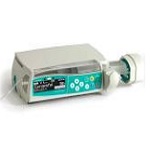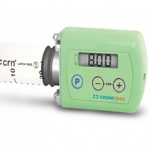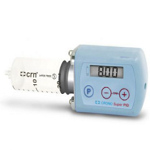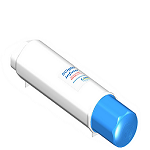
Instructions for Immune Deficiency
Immunodeficiency is a state in which the immune system’s ability to fight infectious disease and cancer is compromised or entirely absent. Most cases of immunodeficiency are acquired (“secondary”) due to extrinsic factors that affect the patient’s immune system.
Treatment for immunodeficiency disorders commonly includes antibiotics and immunoglobulin therapy. Other antiviral drugs, amantadine and acyclovir, or a drug called interferon are used for treatment of the viral infections caused by immunodeficiency disorders.
Select Instructions From the List Below
B Braun Syringe Pump Instructions
Perfusor Space Syringe Pump The first syringe pump to include air and road transport in the 510(k) cleared Read more...
Crono Five – Subcutaneous Pump
Crono Five is an ambulatory infusion pump The Crono Five is an ambulatory infusion pump especially suited Read more...
Crono Super-PID subcutaneous pump Instructions
Crono Super PID Ambulatory Syringe Infusion Pump The Crono Super PID is an ambulatory syringe infusion pump Read more...
Freedom 60 Infusion pump – Syringe
FREEDOM60® Syringe Pump A completely portable syringe infusion system that gives you the freedom to infuse anywhere, Read more...
How to Inject Methotrexate Instructions
Methotrexate (Injection Route, Subcutaneous Route) The Mayo Clinic Drug information provided by: Merative, Micromedex® A nurse or Read more...
How to self-administer Hizentra Instructions
How to self-administer Hizentra Hizentra is a subcutaneous immunoglobulin, or SCIg, which means it is infused in Read more...
Medfusion 3500 Syringe Pump Instructions
Medfusion 3500 Syringe Pump Designed to enhance safety while maintaining simplicity to deliver individualized care to patients Read more...
Medicare Information – CMS
Medicare - CMS Information The Centers for Medicare & Medicaid Services (CMS) has issued key guidance to Programs of All-Inclusive Care Read more...
ORENCIA® (abatacept) Subcutaneous Injector Instructions
ORENCIA® (abatacept), Auto Injector ORENCIA Injection for subcutaneous use is intended for use under the guidance of Read more...
SCIg60 Infuser System
SCIg60 Pump The SCIg60 Infuser is a mechanical syringe pump controlled by a proprietary flow rate device. The Read more...
Select Instructions From the List Below
B Braun Syringe Pump Instructions
Perfusor Space Syringe Pump The first syringe pump to include air and road transport in the 510(k) cleared Read more...
Crono Five – Subcutaneous Pump
Crono Five is an ambulatory infusion pump The Crono Five is an ambulatory infusion pump especially suited Read more...
Crono Super-PID subcutaneous pump Instructions
Crono Super PID Ambulatory Syringe Infusion Pump The Crono Super PID is an ambulatory syringe infusion pump Read more...
Freedom 60 Infusion pump – Syringe
FREEDOM60® Syringe Pump A completely portable syringe infusion system that gives you the freedom to infuse anywhere, Read more...
How to Inject Methotrexate Instructions
Methotrexate (Injection Route, Subcutaneous Route) The Mayo Clinic Drug information provided by: Merative, Micromedex® A nurse or Read more...
How to self-administer Hizentra Instructions
How to self-administer Hizentra Hizentra is a subcutaneous immunoglobulin, or SCIg, which means it is infused in Read more...
Medfusion 3500 Syringe Pump Instructions
Medfusion 3500 Syringe Pump Designed to enhance safety while maintaining simplicity to deliver individualized care to patients Read more...
Medicare Information – CMS
Medicare - CMS Information The Centers for Medicare & Medicaid Services (CMS) has issued key guidance to Programs of All-Inclusive Care Read more...
ORENCIA® (abatacept) Subcutaneous Injector Instructions
ORENCIA® (abatacept), Auto Injector ORENCIA Injection for subcutaneous use is intended for use under the guidance of Read more...
SCIg60 Infuser System
SCIg60 Pump The SCIg60 Infuser is a mechanical syringe pump controlled by a proprietary flow rate device. The Read more...









